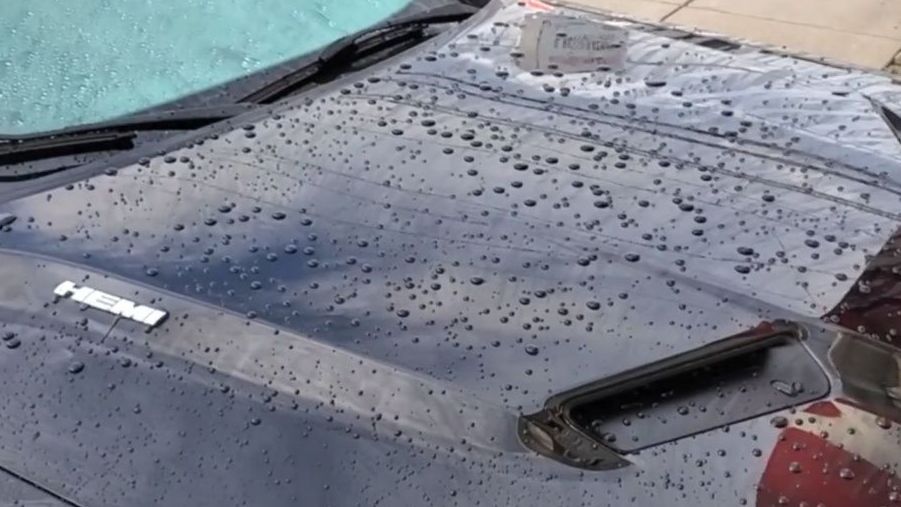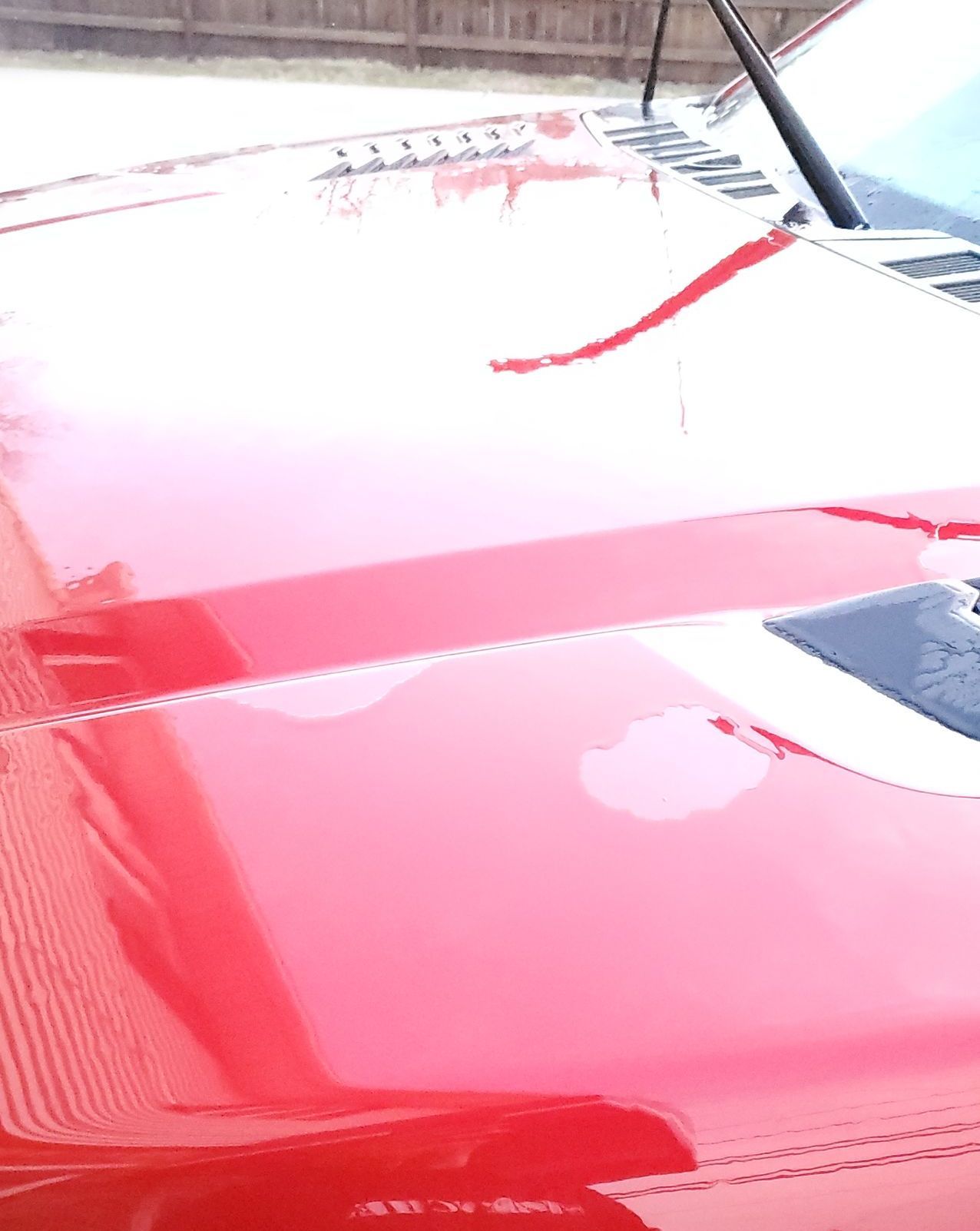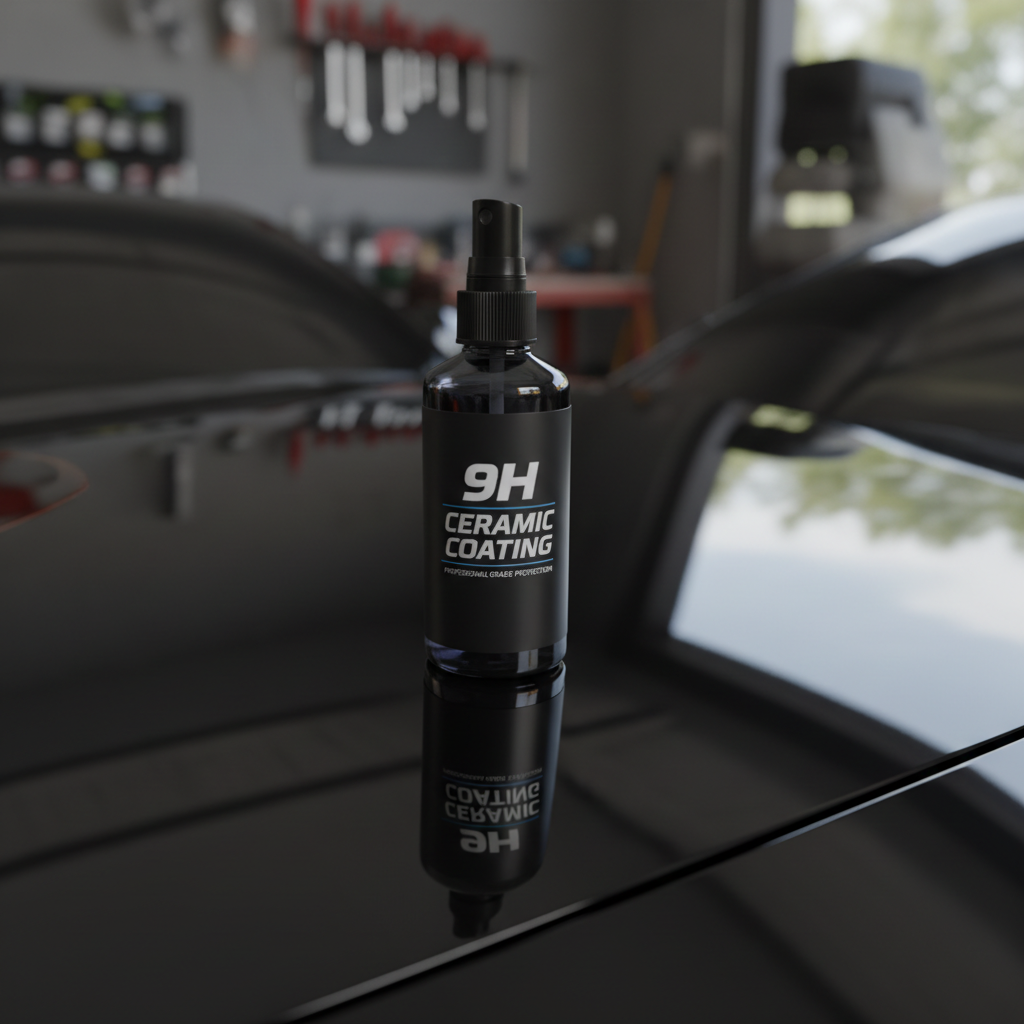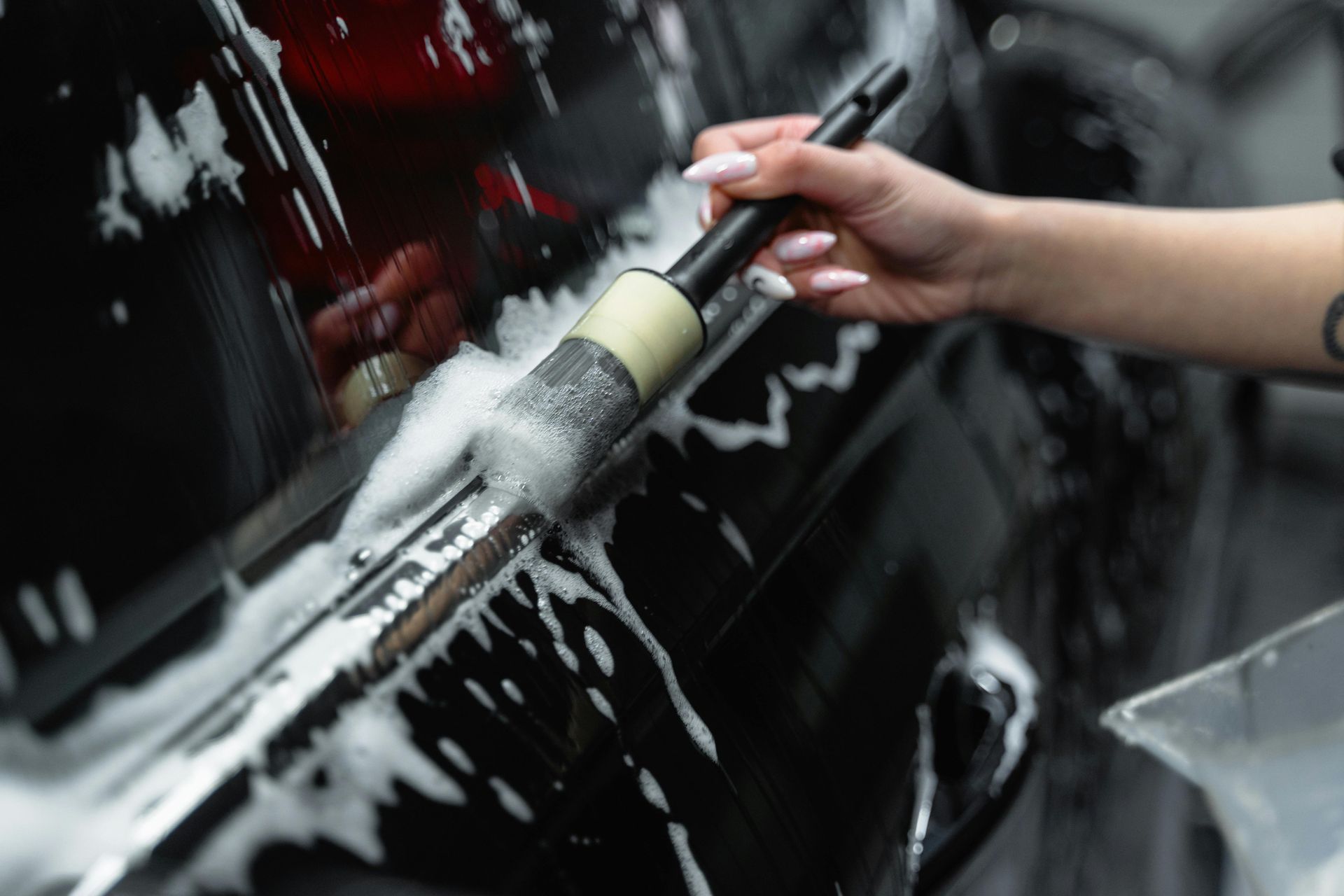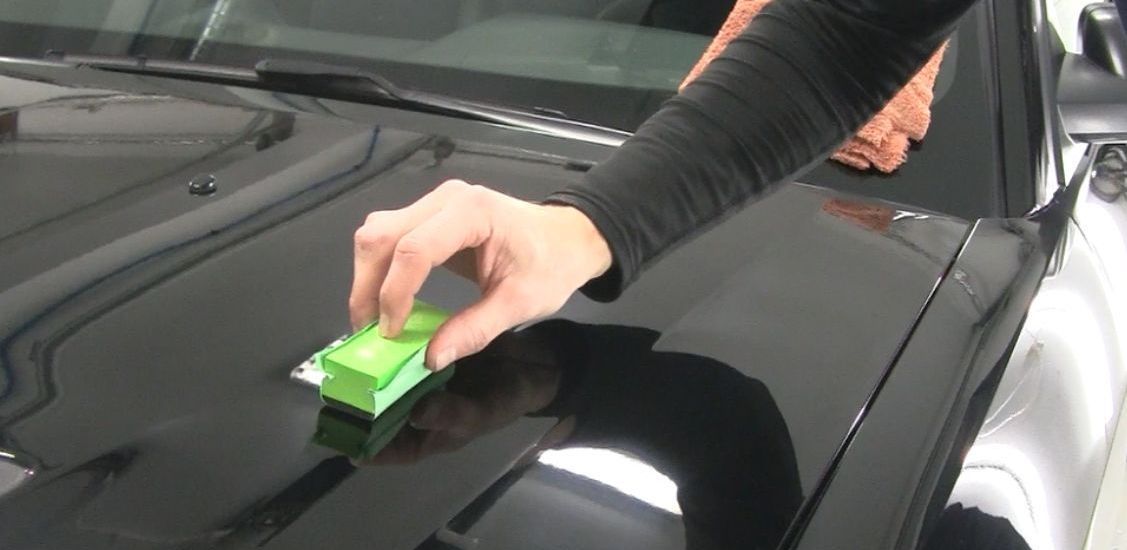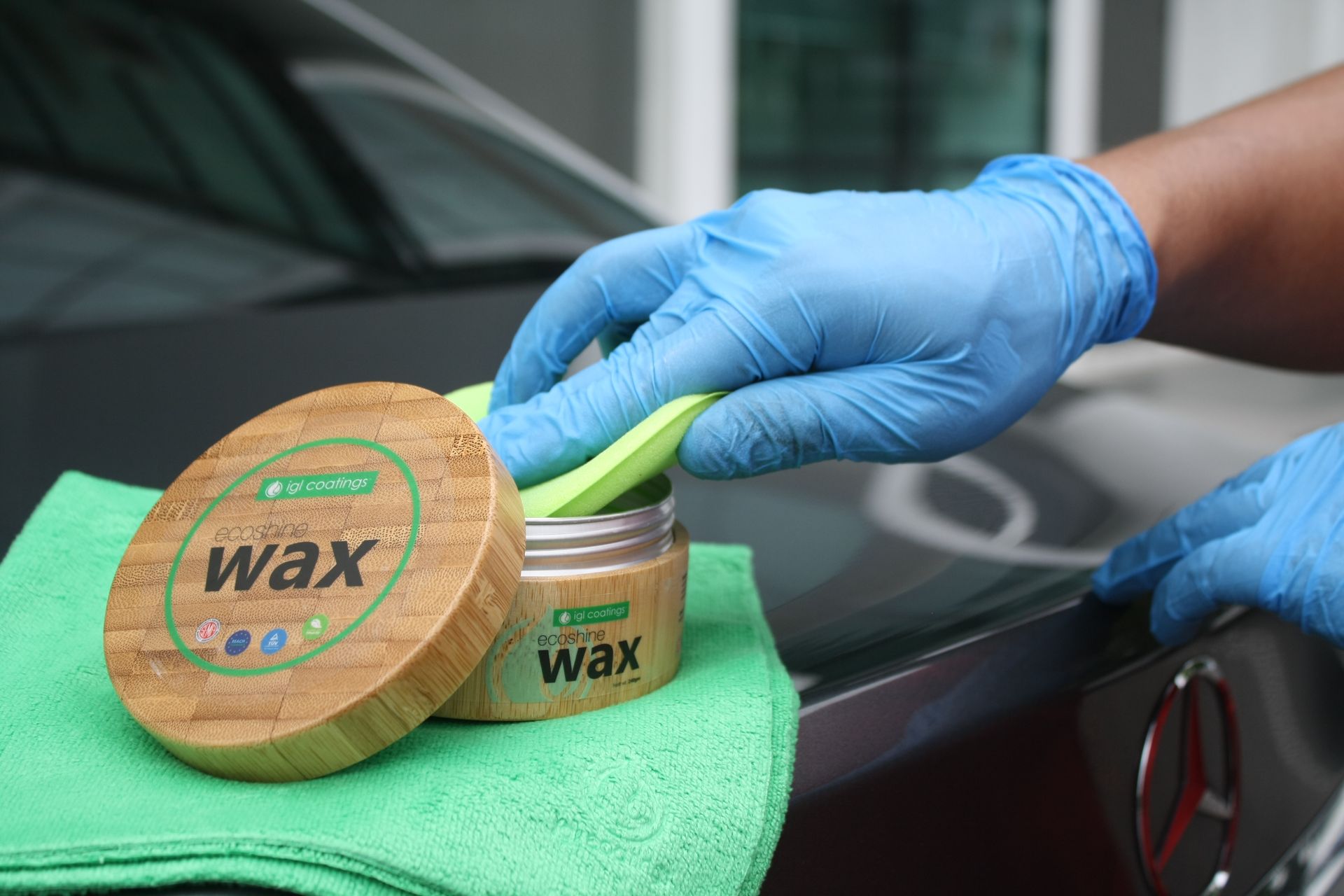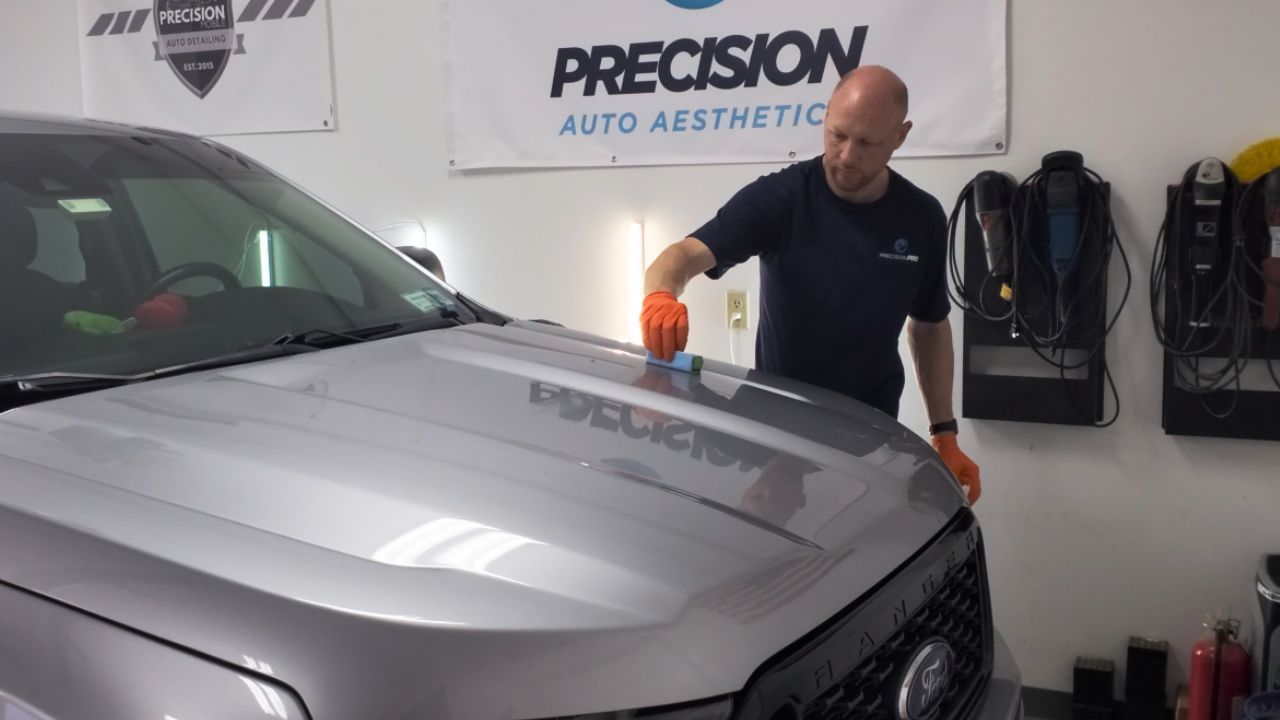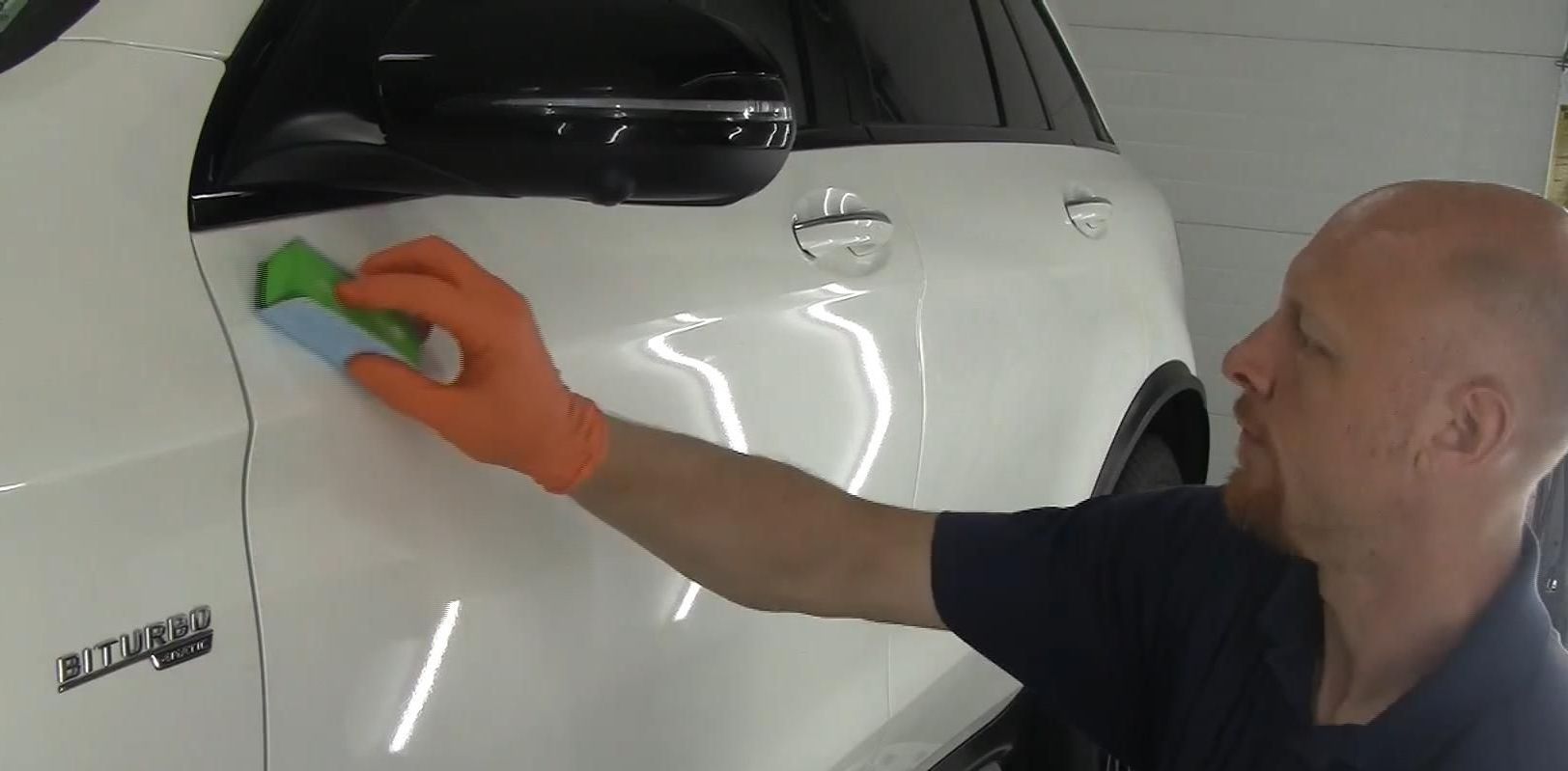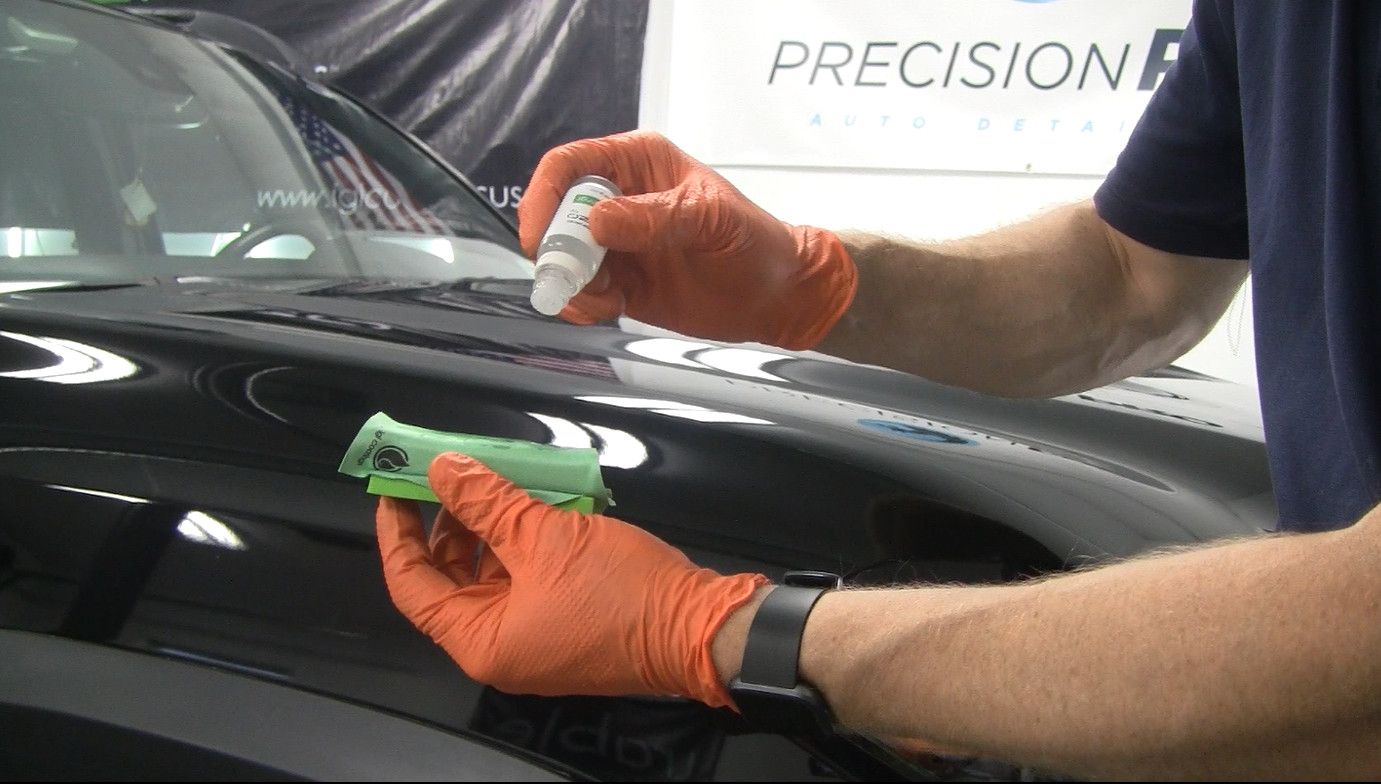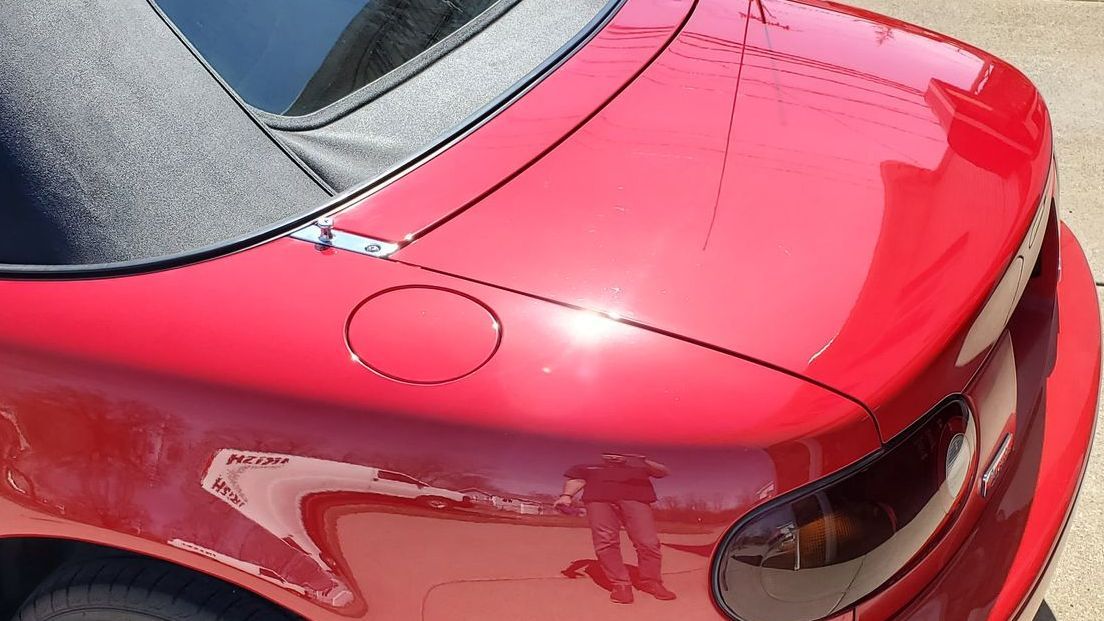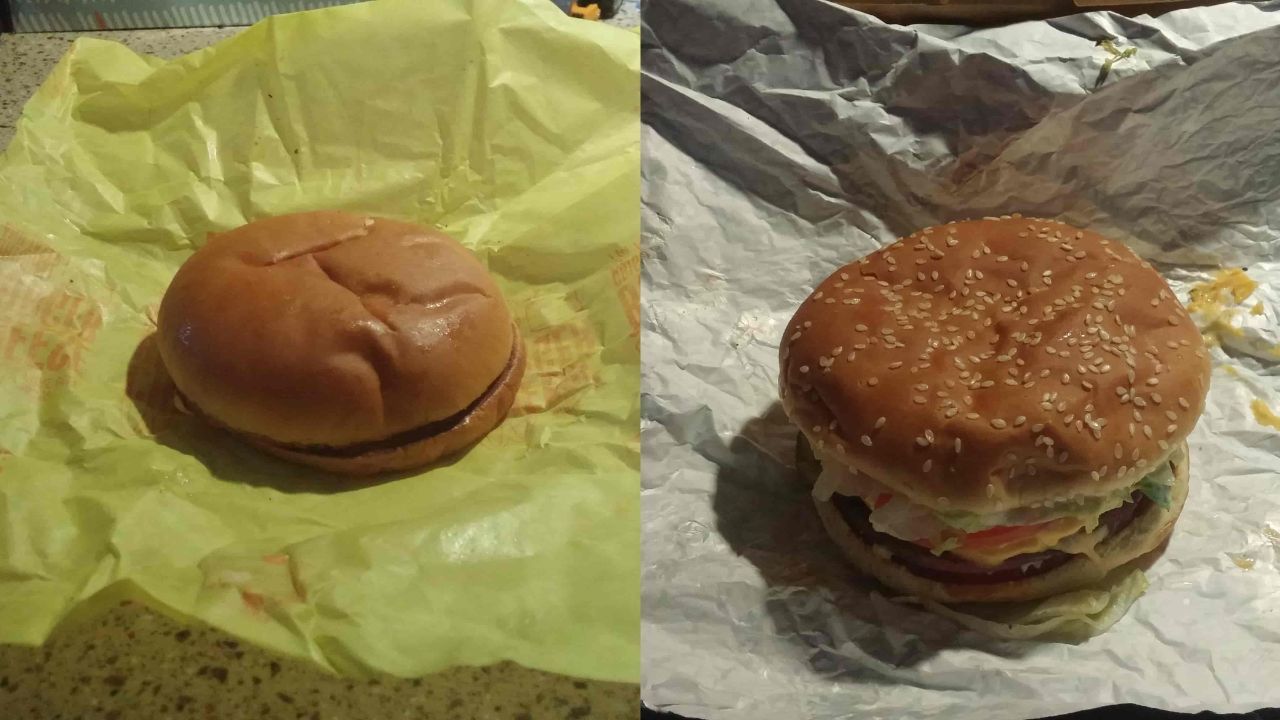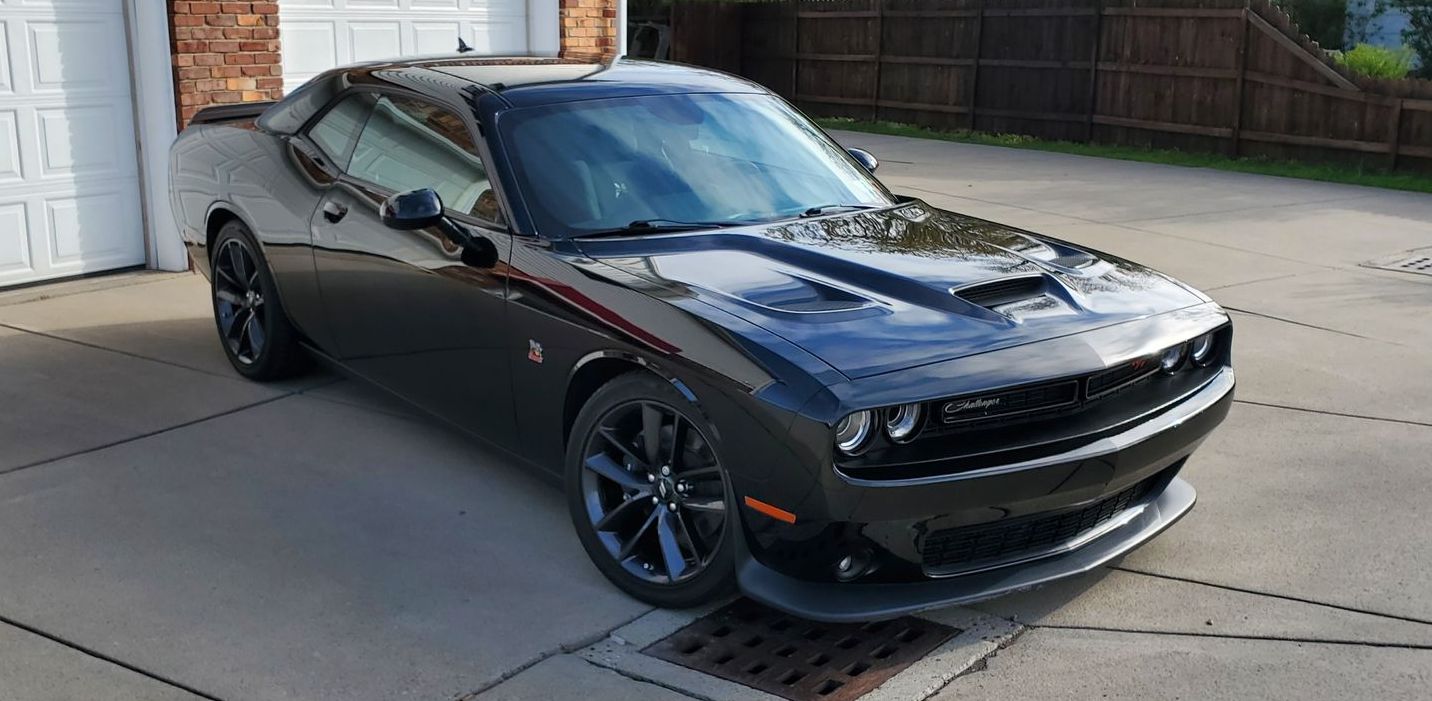Water Beading vs Sheeting
Beading vs. Sheeting in the Auto Detailing World
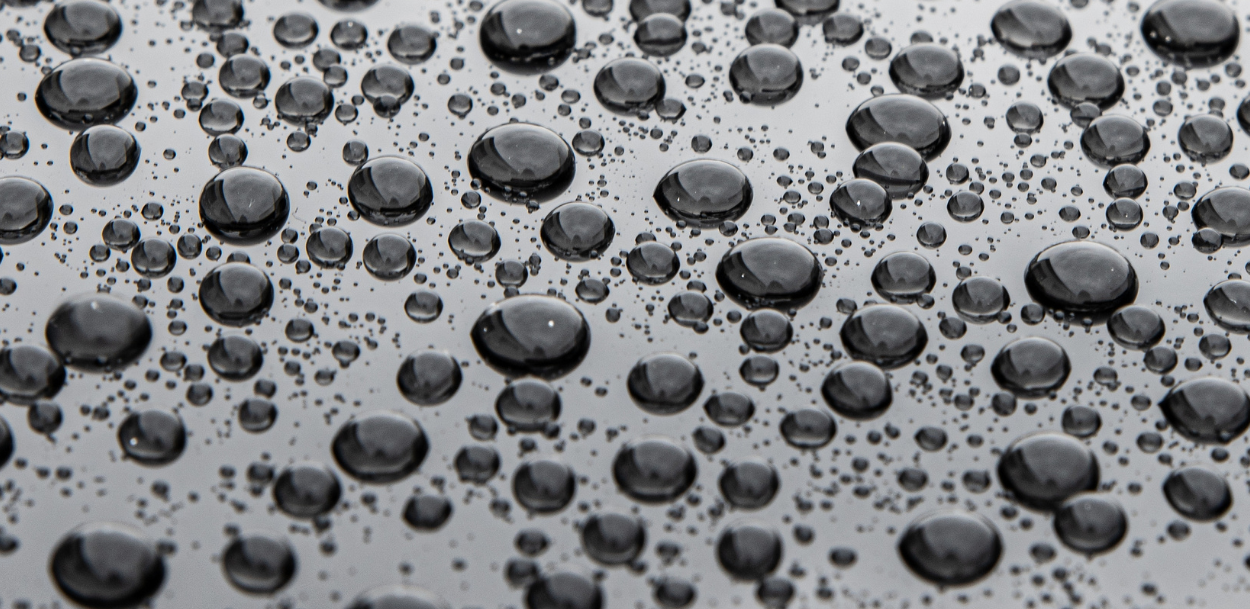
In the world of auto detailing, two terms often spark heated debates: beading and sheeting.
You might already be familiar with beading. But, sheeting remains a term of much confusion.
Today, we're diving deep into these things. We'll find their true meaning. Then, you'll be armed to make your next move.
Water Beading vs Sheeting: What Every Car Owner Needs to Know
Key Takeaways
- Water beading looks cool but can leave water spots if droplets dry on your paint
- Water sheeting helps prevent spots by sliding water off faster, but true sheeting coatings are rare
- Ceramic coatings offer the best of both worlds-tight beads that
"literally jumped off"
your vehicle
- Proper maintenance matters more than chasing perfect water behavior
Why Car Enthusiasts Obsess Over Water Droplets
We’ve all seen those Instagram posts-perfect water beads glittering on a freshly waxed hood. But here’s the truth no one tells you: those picturesque droplets are actually time bombs for your paint.
When water beads form, they trap dirt and minerals against your clear coat. As they evaporate, they leave behind
concentrated gunk that etches into your paint like tiny acid baths. I’ve seen clients panic when their “protected” paint ends up looking like a Dalmatian after one summer storm.
The Science Made Simple
Let’s break this down without the chemistry degree:
Hydrophobic = Water-hating (forms beads)
Hydrophilic = Water-loving (forms sheets)
Most waxes and sealants are hydrophobic-they make water bead up. Professional ceramic coatings (check our Ceramic Coating Pricing here) take this further. They create such an extreme water-repelling surface that beads actually merge and sheet off as you drive.
“Beading and sheeting are two sides of the same coin. A well-protected car will do both depending on how water hits it.” – Detailed Image
| Feature | Water Beading | Water Sheeting |
|---|---|---|
| Appearance | Round droplets that sit on surface | Thin layer of water flowing uniformly off surface |
| Surface Type | Highly hydrophobic | Can be hydrophilic or extremely hydrophobic |
| Drying Time | Can be slower if beads remain | Typically faster as water runs off quickly |
| Water Spot Risk | Higher if beads evaporate on surface | Lower as less water remains on surface |
| Visual Appeal | Often considered more aesthetically pleasing | Less visually dramatic but more practical |
| Cleaning Efficiency | Good for carrying away loose contaminants | Better for quickly removing larger volumes of water |
| Protection Indicator | Visible confirmation of hydrophobic protection | Less visually obvious indicator of protection |
The Hidden Danger of Pretty Water Beads
Left: Tight water beads on a ceramic coated vehicle. Right: Water slowing sheet off the hood of a pickup truck.
Last month, a customer showed me his new truck’s hood-covered in permanent water spots. The problem? Using a wax that created tight beads but didn’t shed water quickly.
Here’s why this happens:
- Beads evaporate slower than sheets, giving minerals more time to bond with paint
- Urban rain contains pollutants that accelerate etching
- Hard water from sprinklers or car washes leaves worse stains than rainwater
The solution isn’t avoiding beads completely (that’s nearly impossible). It’s using something that can protect you vehicle's OEM paint, a sacrificial layer.
Ceramic Coatings: The Gold Standard
Our coatings uses advanced TiO2 formula to create a layer that can protect your vehicle's paint.
| Protection Type | Primary Water Behavior | Longevity | Maintenance Level |
|---|---|---|---|
| Traditional Wax | Strong Beading | 1 - 3 months | High (frequent reapplication) |
| Synthetic Paint Sealant | Moderate beading/Some sheeting | 3 - 6 months | Medium |
| Ceramic Spray Coating | Balanced beading/sheeting | 6-12 months | Medium-Low |
| Professional Ceramic Coating | Extreme beading with sheeting | 2-5+ years | Low (proper maintenance) |
“I thought coatings were just hype until I saw how water literally jumped off my car after a storm,” said recent client Mark T.
Choosing the Best Water Repellent for Your Car
Now, the million-dollar question. Which is the knight in shining armor for your car's finish?
Beading is neat and detailers love to brag and show photos of water beading. Is it the ideal situation, though?
As mentioned before, if you don't attend to them, the beads will dry. They'll leave minerals behind, damaging your paint.
The auto detailing industry loves beads. But, we want less beading on your paint.
Enter the hero of our story: hydrophilic sheeting. This phenomenon ensures a bead-free existence. It brings peace of mind and a pristine finish.
But, the search for a hydrophilic car coating continues. The market has yet to unveil a product that embodies this ideal.
You do have the option to apply a barrier that repels water. Something with the sheeting properties like a ceramic coating.
Yes, you can apply a wax or paint sealant. They do lack the extreme hydrophobic abilities of a coating, though.
If you have a flat, level surface, any water that lands on it and doesn't immediately drain off the surface will evaporate leaving minerals behind to etch your paint.
Ceramic coatings can be the sacrificial layer that absorbs this damage where wax and sealant can't.
Yes, we can polish your vehicle and remove the etching. But you have to remember, every time we polish your paint, we're removing a little bit of clear coat, that layer that makes your car shine.
Once you remove too much, you're risking even more damage to your paint.
Removing and reapplying a ceramic coating is safer and cheaper than having to repaint your car because too much clear has been taken off.
"It's better to polish it once then ceramic coat it. Every time you polish your vehicle, you're one step closer to causing permanent damage. Even unseen damage is happening every time we polish." - Dan - Precision Auto Aesthetics
3 Maintenance Tips to Save Your Paint
- Blow dry > towel dry – Use a leaf blower, air compressor, or an air blower (like the Metro Vac) to prevent bead-induced swirling
- Weekly rinseless wash – Our Coating Care Guide can help you there
- Spot treatment – Hit fresh water spots immediately with a quick detailer
“The best protection isn’t what makes the prettiest beads, it’s what keeps your paint flawless years later.” – Dan - Precision Auto Aesthetics
Final thoughts
Be aware that any perfectly horizontal surface will not sheet rain water.
Unless you're prepared to run out to your car after every rain, any water beads on a flat, level surface will dry and potentially cause water spots.
Chasing perfect water behavior is like obsessing over tire shine... it looks great but doesn’t protect your investment.
Focus instead on long-term paint health through quality coatings and smart maintenance.
Curious about the investment?
Many Orchard Park owners are surprised to find that a 5-year coating costs less than a daily coffee.
➜ Try our Ceramic Coating Cost Estimator to build a custom package for your vehicle size.

